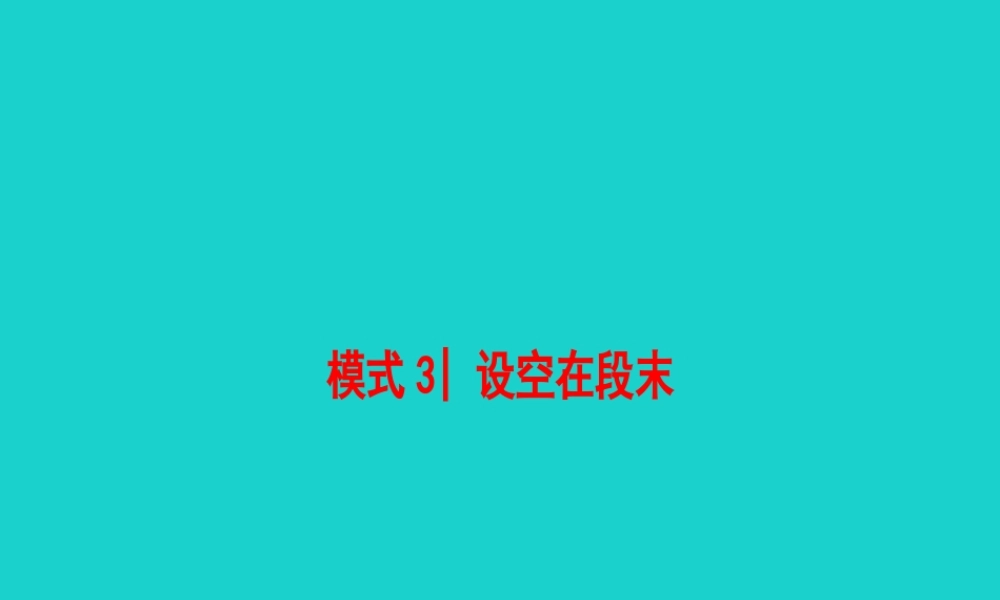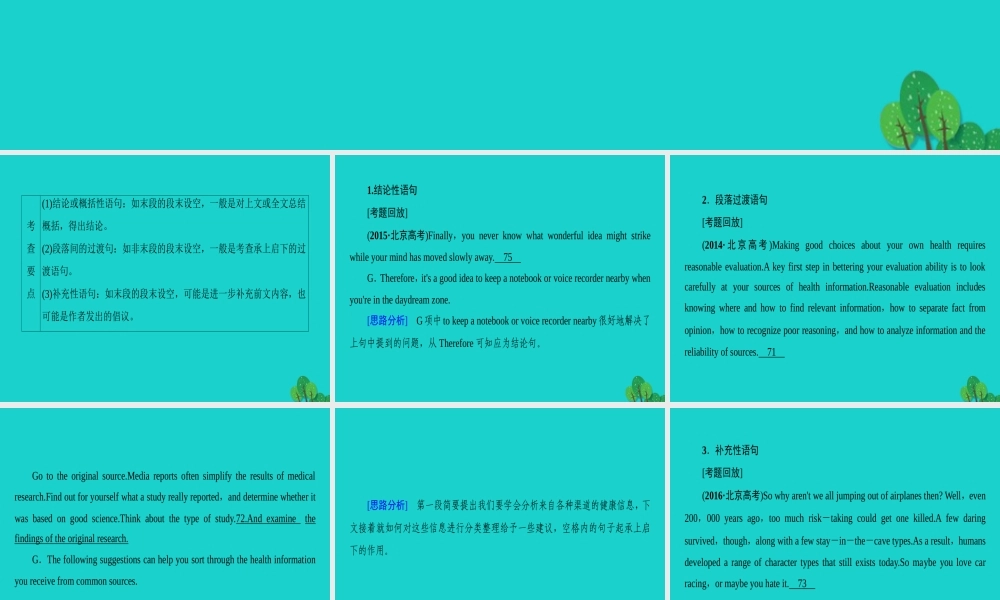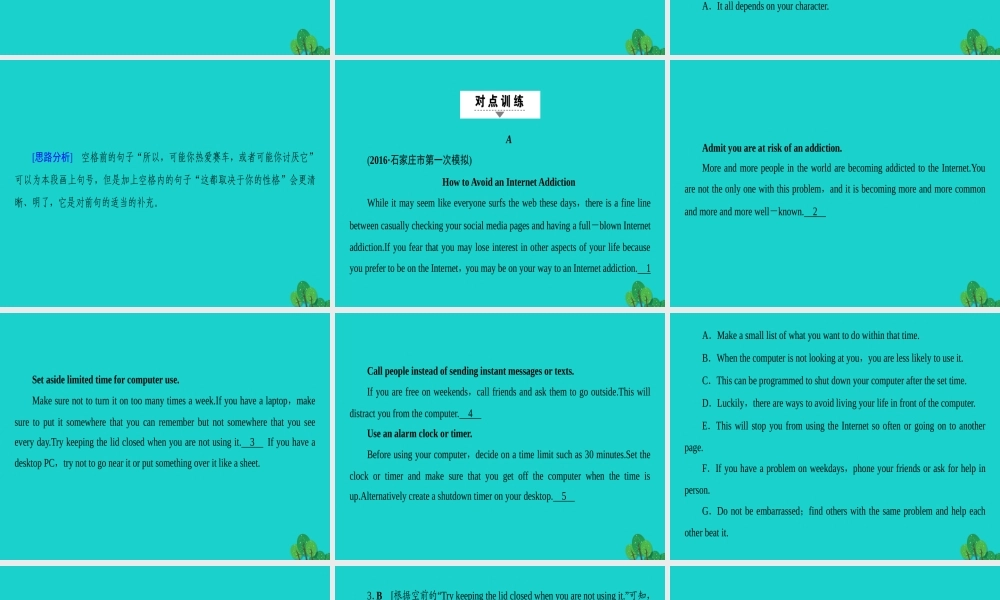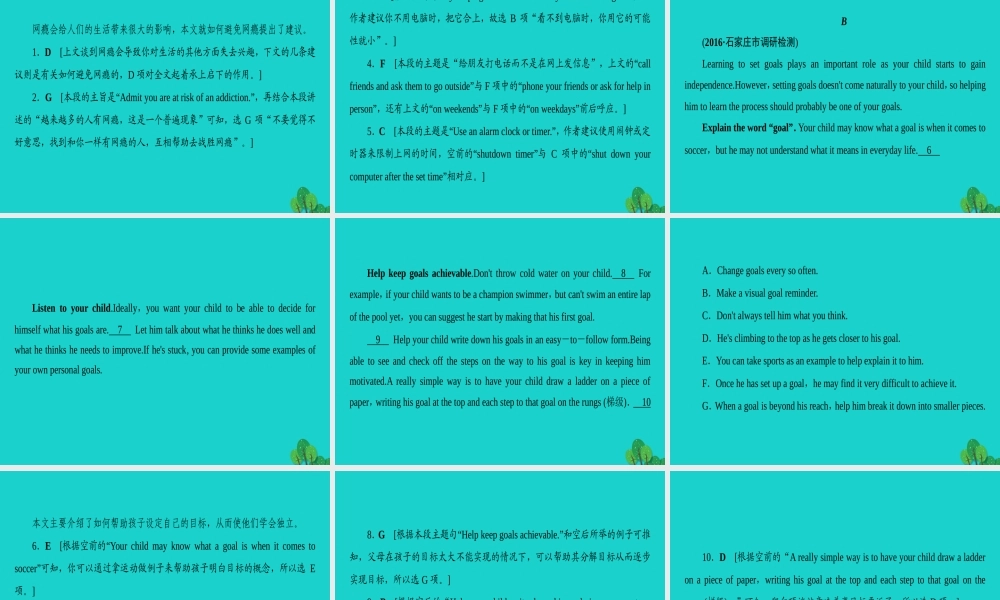模式 3| 设空在段末 考查要点 (1)结论或概括性语句:如末段的段末设空,一般是对上文或全文总结概括,得出结论。 (2)段落间的过渡句:如非末段的段末设空,一般是考查承上启下的过渡语句。 (3)补充性语句:如末段的段末设空,可能是进一步补充前文内容,也可能是作者发出的倡议。 1.结论性语句 [考题回放] (2015·北京高考)Finally,you never know what wonderful idea might strike while your mind has moved slowly away. 75 G.Therefore,it's a good idea to keep a notebook or voice recorder nearby when you're in the daydream zone. [思路分析] G项中to keep a notebook or voice recorder nearby 很好地解决了上句中提到的问题,从 Therefore 可知应为结论句。 2.段落过渡语句 [考题回放] (2014· 北 京 高 考 )Making good choices about your own health requires reasonable evaluation.A key first step in bettering your evaluation ability is to look carefully at your sources of health information.Reasonable evaluation includes knowing where and how to find relevant information,how to separate fact from opinion,how to recognize poor reasoning,and how to analyze information and the reliability of sources. 71 Go to the original source.Media reports often simplify the results of medical research.Find out for yourself what a study really reported,and determine whether it was based on good science.Think about the type of study.72.And examine the findings of the original research. G.The following suggestions can help you sort through the health information you receive from common sources. [思路分析] 第一段简要提出我们要学会分析来自各种渠道的健康信息,下文接着就如何对这些信息进行分类整理给予一些建议,空格内的句子起承上启下的作用。 3.补充性语句 [考题回放] (2016·北京高考)So why aren't we all jumping out of airplanes then? Well,even 200,000 years ago,too much risk-taking could get one killed.A few daring survive...




